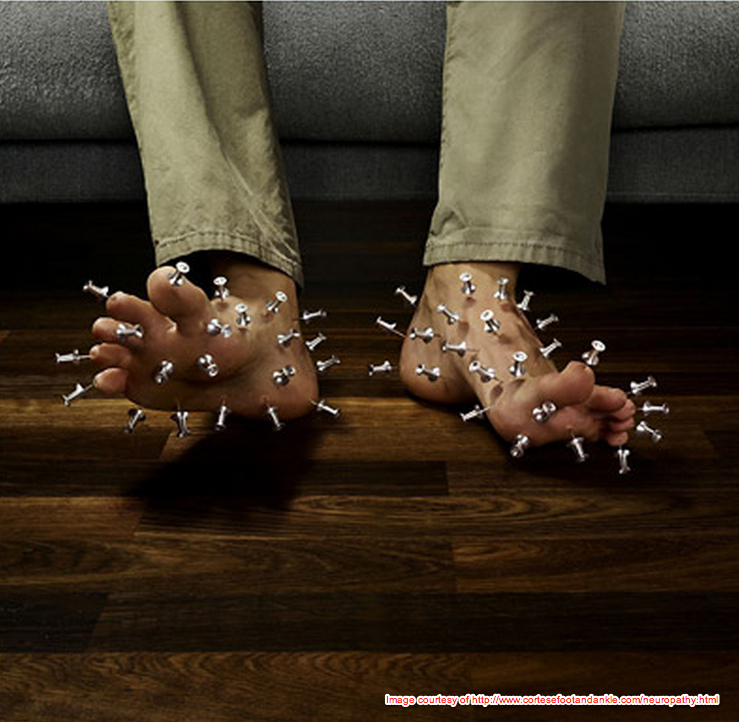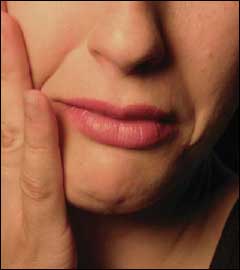Treating Neuropathy with Acupuncture and Chinese Medicine
 Monday, September 7, 2015 at 6:13PM
Monday, September 7, 2015 at 6:13PM Because of the association that many people and their physicians make between acupuncture and nerve functioning, it is common for many patients to seek out an acupuncturist immediately upon being diagnosed with any type of neuropathy. For good reason, it turns out: acupuncture and, frequently herbal therapy, can be exceptionally useful in treating neuropathies originating from many disease processes. In broad terms, neuropathy is the manifestation of any disease which affects the peripheral nervous system leading to one or a combination of pain, tingling, 'pins and needles' sensation, numbness, or weakness in the hands and/or feet. Neuropathy can be caused by a large number of triggers ranging from diseases such as cancer, diabetes, or AIDS; nutritional deficiencies; or toxic overloading the body with either environmental poisons or prescription drugs. A large number of neuropathy cases are termed, 'idiopathic', meaning that western medicine can not determine a specific cause of the problem.
In broad terms, neuropathy is the manifestation of any disease which affects the peripheral nervous system leading to one or a combination of pain, tingling, 'pins and needles' sensation, numbness, or weakness in the hands and/or feet. Neuropathy can be caused by a large number of triggers ranging from diseases such as cancer, diabetes, or AIDS; nutritional deficiencies; or toxic overloading the body with either environmental poisons or prescription drugs. A large number of neuropathy cases are termed, 'idiopathic', meaning that western medicine can not determine a specific cause of the problem.
An acupuncturist evaluates each person's case of neuropathy differently weighing the health history of the patient; the location of the problem; the drugs or environmental chemical exposure and, from this, weaves together a treatment plan that most effectively restores nerve function. Neuropathies tend to respond incredibly well to acupuncture and, occasionally additional herbal intervention, depending on the cause of the nerve issue.
Research and Articles
A study done by the Cancer Treatment Centers of America, and which can be read about here, found that acupuncture was extemely useful for treating chemotherapy related neuropathy, noting that:
. . . all of the patients reported or had improvement in their CIPN grades after starting acupuncture.
The researchers note that using customized acupuncture point prescriptions in the TCM style produces superior patient outcomes when the use of distal acupuncture points are employed. The researchers emphasize the need for customization of the acupoint prescriptions per each patient’s differential diagnostics for maximum clinical efficacy. In addition, they emphasize that distal acupoints “increase blood flow” and therefore have an especially important role in the treatment of CIPN.
A British study recently confirmed that acupuncture can be useful in treating chemotherapy induced neuropathy, finding that 82% of the patients in the study received benefit. In a small related study, from Germany, 83% of the subjects enrolled in the study found sustantial benefit from acupuncture. Both can be read about here. In addition the patients found that,
. . . some patients derived additional benefits from the treatment including a reduction in analgesic use and improved sleeping patterns.
In 2011 the University of Arizona examined acupuncture for HIV-related neuropathies, as well as mortality from that disease and found that:
Acupuncture was clearly effective in reducing attrition and mortality in this sample, especially when health status was taken into account . . . Moreover, these results replicated most of the findings that did not involve the presence of amitriptyline from the initial independent study in this research project.
The University Medical Center in Hamburg, Germany examining acupuncture for chemotherapy induced peripheral neuropathy (CIPN) found that,
The data suggest that acupuncture has a positive effect on CIPN.
A Chinese study entitled, Fifteen-Day Acupuncture Treatment Relieves Diabetic Peripheral Neuropathy, evaluated the use of acupuncture in a diabetic population suffering from both sensory and motor nerve damage. It found,
... evidence that acupuncture may be clinically useful for the radical treatment of diabetic neurapathy.
The study compared:
... forty-two cases treated with acupuncture with 21 cases exposed to sham acupuncture and observed the effects on nerve conduction velocity and a variety of subjective symptoms associated with diabetic peripheral neuropathy.
Three of the six measures of motor nerves, and two measures of sensory function, demonstrated significant improvement (p < 0.05) over the 15-day treatment period in the acupuncture group, while no motor or sensory function significantly improved in the sham acupuncture group. There were also significant differences in vibration perception threshold between the groups (p < 0.05) and when compared to the baseline levels (p < 0.01) in the acupuncture group. Acupuncture was significantly more effective than sham for treatment of numbness of the lower extremities, spontaneous pain in the lower extremities, rigidity in the upper extremities and alterations in temperature perception in the lower extremities after therapy.
 nerve pain,
nerve pain,  neuralgia,
neuralgia,  neuropathy,
neuropathy,  numbness,
numbness,  pins and needles in
pins and needles in  Disorders
Disorders 